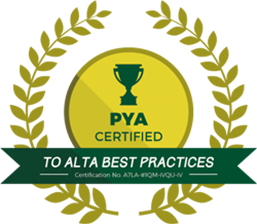
Whether you are downsizing, upsizing, or just simply needing a change of scenery, moving house is always an expensive project. Therefore, it is imperative that you are pricing your home efficiently and giving yourself the best shot at making a profitable sale. An attractive price paired with equally attractive packaging can make your home stand out among the rest, but how do you come up with a price that will get you offers?
The first step is to figure out your property’s value, and this is something that your real estate agent will be able to help you with. This value can also be determined using an automated valuation model. AVM’s can be found on many different websites including popular real estate sites such as Zillow and Redfin. Experienced agents will be able to confirm whether they believe the AVM has given an accurate market value for your property.
Studying past sale statistics for the home you own and other homes in your area can also help determine your property’s market value. Although other homes may have sold for a wide range of prices, finding a few that look similar to yours can help you develop a price range, from which you will choose your final listing price. If you work with a local real estate agent they can confirm whether you are on target with your price range.
If you need to sell your home quickly, you’ll probably be advised to list in the lower end of your price range, but if you don’t have time to spare, don’t assume that the opposite rule applies. If you overprice your home and the prices in your area start declining, you will find yourself chasing a market that you may never catch up to. For many buyers, being the only person interested in a property can be a red flag, so pricing at a rate that not many people can afford can actually cost you time and money.
It is important to understand that market conditions can change while your house is listed, and paying attention to these changes could be the make it or break it in your sale. If you or your agent receive new information about the market, it is important to analyze that information and react appropriately and efficiently. Following these market trends will ensure that your price will appeal to the largest number of buyers.
Due to the changing of the real estate market, it is also a good idea to have back up plans. With your agent, figure out how offers you receive or don’t receive will affect your listing price. If you have not received any offers within a certain time limit, maybe you should reevaluate what you are asking for. It is also likely that you and your agent will want to negotiate on any offers made. Discussing a game plan for those potential negotiations before they happen can ensure that you are on the same page and that you will be able to communicate your counter offers effectively.
If you are selling your property, chances are that you are also looking to buy a replacement home. If you go into setting your sale with the mindset of a buyer, you are likely to set your listing at a price that will relate to those trying to purchase your home. Thinking about what you would like to see in a home, and the sort of price you would pay for those amenities can be a good comparison tool. If you wouldn’t pay your listing price for a similar home, then other buyers probably won’t either.
Finally, if you are fortunate enough to be working with a professional listing agent, make the most of their help. Most agents will have valuable experience in pricing homes and can help you during this process. Listen carefully to their advice and trust their knowledge of the market and you will likely get the best offer possible on your home.
Visit www.championtitle.com to see how we can help with the settlement of your home.










